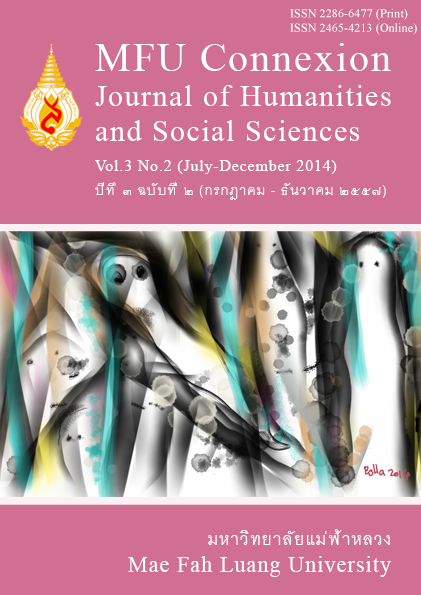มิติทางกฎหมายเกี่ยวกับการส่งผู้ร้ายข้ามแดนระหว่างราชอาณาจักรไทย กับสาธารณรัฐประชาธิปไตยประชาชนลาว: ศึกษาการเปลี่ยนแปลง ภายหลังปีพุทธศักราช 2544
Main Article Content
Abstract
The objectives of this article is to examine the procedural law and practices regarding extradition between the Kingdom of Thailand and the Lao People’s Democratic Republic (Lao PDR) after the completion of the ratification of the treaty governing the extradition in the year B.E. 2544. This research focuses on the co-operation of the government of two countries to resolve the issues after the incident at the Customs Office during the year B.E. 2543. This article also undertook comparative study of the rules contain in the Extradition Act B.E. 2551 of Thailand and the Law on the Extradition AD.2012 of Lao PDR with the United Nations Model Treaty on Extradition AD.1990. This study including the qualitative research from documents and legal texts, law journal, thesis, published research, Court jugement, Treaty, both in Thai-Lao and foreign languages related to the Extradition.
The results showed that the Extradition practices between Thailand and Lao PDR were not in accordance with the legal process on extradition treaty which the two sides signed. It is seen from the failure of the two countries in their endeavor to resolve the incident of customs office at Wang Tao-Chong Mek after the year 2544. At that time Thailand and Lao PDR have signed an extradition treaty, but the two countries have not yet ratified the treaty at the time the incident occurred. In the beginning, Thailand has chosen to deploy the provisions of the Extradition Act 2472. Unfortunately, with different political systems and social differences the conflict inevitably resulted in the different interpretations of Thailand-Laos about the incident. Namely, while the Thai government interprets it as an incident of violence against the government of Lao PDR with political purposes. But, the Lao government looks at it as plain robbery. When the Government of Lao PDR has requested the Thai government to send the perpetrators to be trial or punished by law in Lao PDR, the Thai Government strictly restrained the extradition on the ground that extradition process has not been exhausted according to the Thai law. Later on, in contradiction to its prior rationale, the Thai government has ignored the extradition process entirely by sending the requested persons back to the Lao PDR under the Immigration Act 2522. It preferred to deploy semi-legal extradition process instead of full legal extradition. It ignores the rule of law, the principle of equality of persons under the law and many equitable ideologies. The principle and ideology that stipulate that the same legislation should be applied to the similar fact for the transferring of any requested person out of the country. These principles were created simply to protect the rights of the person being extradite.
Currently, Thailand enforces Extradition Act 2551 and Lao PDR has promulgated the Law on Extradition in AD 2012 but the writer finds that both countries’ laws lack provisions that are consistent with the United Nations Model Treaty of Templates on Extradition. As such, there may be some practical problems arise in the future. This article recommends the amendments to the existing laws especially those provisions which are contradictory to or inconsistent with the United Nations Model Treaty. And the said model treaty should be used as a template or as a guide to fix the problem with different legal issues and to enforce the rules in the internationally accepted way.
Article Details
Copyright
Connexion: Journal of Humanities and Social Sciences has an exclusive right to publish the accepted articles in any form. However, the author retains the following rights:
1. The right to the ownership of the article;
2. The right to use all or part of the article in his/her other works;
3. The right to re-produce the article for personal use or for use in the author’s organisation, in which case the author must obtain permission from Connexion: Journal of Humanities and Social Sciences;
4. The right to make copies of all or part of the work for educational use or for the author’s use in classroom teaching; and
5. The right to include the work (both the preprinted and printed versions) in an institutional repository.
References
คำพิพากษาศาลอุทธรณ์ที่ 9951/2546.
เชิดพันธุ์ วิลาวรรณ. (2538, ตุลาคม-ธันวาคม) หลักในการพิจารณาและแบบพิธีในการส่งผู้ร้ายข้ามแดนตามพระราชบัญญัติว่าด้วยการส่งผู้ร้ายข้ามแดนระหว่างราชอาณาจักรไทยกับสหรัฐอเมริกา พ.ศ. 2533, ดุลพาห, 4, 42, 76-77.
พลวิเชียร ภูกองไชย. (2546) ผลกระทบจากการยึดด่านศุลกากรวังเต่าต่อความสัมพันธ์ระหว่างไทย-ลาว, วิทยานิพนธ์รัฐศาสตรมหาบัณฑิต. มหาวิทยาลัยเชียงใหม่, เชียงใหม่.
วิชญา ลิ่มวงศ์. (2537) ความผิดทางการเมืองในการส่งผู้ร้ายข้ามแดน, วิทยานิพนธ์นิติศาสตรมหาบัณฑิต, มหาวิทยาลัยธรรมศาสตร์, กรุงเทพฯ.
สุรชัย ศิริไกร. (2527) ความสัมพันธ์ไทย-ลาว, กรุงเทพฯ: ศูนย์วิจัยมหาวิทยาลัยธรรมศาสตร์.
โสภาคย์ วินิจนัยภาค. (2555) การส่งผู้ร้ายข้ามแดนกับการส่งตัวออกนอกราชอาณาจักรตามกฎหมายคนเข้าเมือง, วิทยานิพนธ์นิติศาสตรมหาบัณฑิต, มหาวิทยาลัยธุรกิจบัณฑิตย์, กรุงเทพฯ.
หงสา อินทิลาด. (2555, 10 กรกฎาคม) นักวิชาการกฎหมายกรมสนธิสัญญาและกฎหมาย กระทรวงการต่างประเทศ สปป.ลาว, สัมภาษณ์.
อนุศักดิ์ อุดมเดช. (2011) การส่งผู้ร้ายข้ามแดนระหว่างลาว-ไทย: ศึกษากรณีเหตุการณ์วังเต่า-ช่องเม็ก, วิทยานิพนธ์นิติศาสตรมหาบัณฑิต, มหาวิทยาลัยแห่งชาติลาว, นครหลวงเวียงจันทน์ สปป.ลาว.
อุทัย อาทิเวช และศศิน ศุขจรัส. (2547, 6-7 กันยายน) มาตรการป้องกันและปราบปรามองค์กรอาชญากรรมและผู้มีอิทธิพล, เอกสารประกอบการประชุมทางวิชาการระดับชาติว่าด้วยงานยุติธรรมครั้งที่ 2, ศูนย์การประชุมอิมแพ็คเมืองทองธานี, กรุงเทพฯ.


